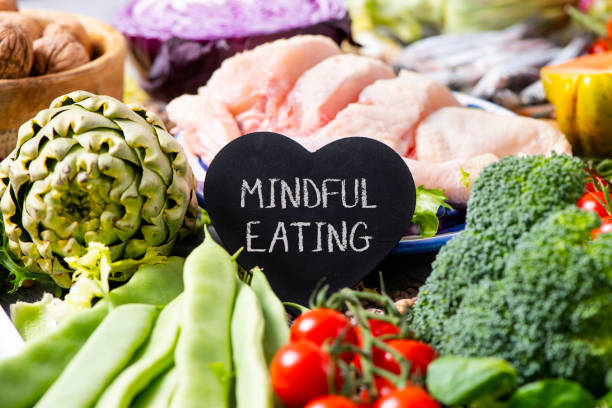Foods Good for Liver Function and Wellness
Foods for liver health include options that support overall function and well-being. Incorporating items like fruits, vegetables, whole grains, and lean proteins can help individuals maintain balanced nutrition while understanding how dietary choices may contribute to long-term liver care.

Why Liver Health Matters
The liver performs over 500 essential functions daily, including filtering toxins from the blood, metabolizing medications, producing proteins necessary for blood clotting, and storing vitamins and minerals. When the liver becomes compromised due to poor diet, excessive alcohol consumption, or underlying health conditions, it can lead to serious complications such as fatty liver disease, cirrhosis, or liver failure. Incorporating liver-friendly foods into your daily routine can help maintain optimal function, support natural detoxification processes, and reduce the risk of chronic liver conditions.
Foods Good for Liver Function and Wellness
Several food groups have been scientifically shown to support liver health. Leafy green vegetables like spinach, kale, and arugula are rich in chlorophyll, which helps neutralize heavy metals and chemicals that burden the liver. Cruciferous vegetables such as broccoli, Brussels sprouts, and cauliflower contain compounds that enhance the liver’s natural detoxification enzymes. Fatty fish like salmon, mackerel, and sardines provide omega-3 fatty acids that reduce inflammation and fat accumulation in the liver. Nuts, particularly walnuts and almonds, offer healthy fats and antioxidants that protect liver cells from oxidative stress. Whole grains like oatmeal, brown rice, and quinoa provide fiber that aids digestion and helps the liver process nutrients more efficiently.
Organic Foods Good for Liver Health
Choosing organic foods can further benefit liver health by reducing exposure to pesticides, herbicides, and synthetic chemicals that the liver must process and eliminate. Organic berries such as blueberries, strawberries, and cranberries are packed with antioxidants called polyphenols that protect the liver from damage and improve its ability to fight inflammation. Organic garlic and onions contain sulfur compounds that activate liver enzymes responsible for flushing out toxins. Organic beets are rich in betalains and fiber, which support detoxification and reduce oxidative stress. Organic olive oil provides healthy monounsaturated fats and antioxidants that help reduce liver fat levels and improve enzyme function. Organic green tea contains catechins, powerful antioxidants that have been shown to improve liver function and reduce fat accumulation.
Nutrition Tips and Foods for Healthy Liver
Beyond selecting specific foods, adopting healthy eating patterns is crucial for liver wellness. Staying hydrated by drinking adequate water throughout the day helps the liver flush out toxins more effectively. Limiting processed foods, refined sugars, and saturated fats reduces the burden on the liver and prevents fat buildup. Incorporating citrus fruits like lemons, grapefruits, and oranges provides vitamin C and antioxidants that stimulate liver detoxification enzymes. Adding turmeric to meals introduces curcumin, a compound with potent anti-inflammatory and antioxidant properties that protect liver cells. Coffee, when consumed in moderation, has been linked to reduced risk of liver disease and improved liver enzyme levels. Maintaining a balanced diet rich in whole foods, lean proteins, and healthy fats while avoiding excessive alcohol consumption creates an optimal environment for liver health.
Foods to Avoid for Liver Protection
Just as certain foods support liver health, others can contribute to liver damage and should be limited or avoided. Excessive alcohol consumption is one of the primary causes of liver disease, leading to inflammation, fatty liver, and cirrhosis over time. Foods high in added sugars and refined carbohydrates, such as candy, pastries, and sugary beverages, contribute to fat accumulation in the liver and increase the risk of non-alcoholic fatty liver disease. Trans fats and highly processed foods containing artificial additives place additional stress on the liver. High sodium intake can lead to fluid retention and worsen liver conditions. Red and processed meats consumed in excess may increase inflammation and liver strain. Being mindful of these dietary pitfalls while emphasizing nutrient-dense, liver-supportive foods creates a comprehensive approach to liver wellness.
Lifestyle Factors That Support Liver Health
Diet is just one component of liver health. Regular physical activity helps reduce liver fat, improve insulin sensitivity, and maintain a healthy weight, all of which benefit liver function. Managing stress through relaxation techniques, adequate sleep, and mindfulness practices reduces inflammation and supports overall metabolic health. Avoiding unnecessary medications and supplements that can burden the liver is important, and any medication use should be discussed with a healthcare provider. Regular health screenings and liver function tests can detect problems early, allowing for timely intervention. Combining a liver-friendly diet with these lifestyle practices creates a holistic approach to maintaining optimal liver health throughout life.
This article is for informational purposes only and should not be considered medical advice. Please consult a qualified healthcare professional for personalized guidance and treatment.




